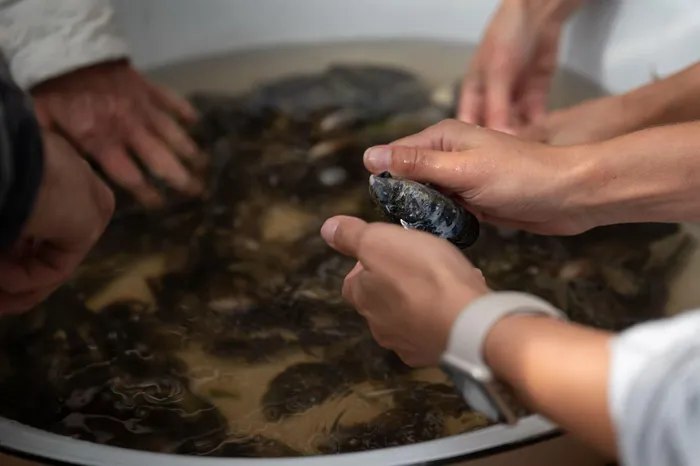City challenges UCT findings over pharmaceutical pollution in Hout Bay

The City has hit back at the findings of a research team, led by UCT’s postdoctoral research fellow Dr Cecilia Ojemaye, which detected a range of PPCPs in mussel tissue samples collected at significant distances from the marine outfall and the Hout Bay River mouth.
Image: Armand Hough/Independent Newspapers
THE City has hit back at the findings of a UCT study that detected a range of pharmaceutical and personal care product compounds (PPCPs) in mussel tissue samples collected at significant distances from a marine outfall and the Hout Bay River mouth.
Deputy Mayor and Mayco Member for Spatial Planning and Environment, Eddie Andrews said the authors of the study appear to be doing no more than speculating when they state that the marine outfall does not achieve the dilution and dispersal of contaminants of emerging concern.
“Their work did not include an analysis of PPCPs in effluent, river water or in coastal waters, and analysed only mussels found in situ in the coastal environment. This study cannot draw conclusions as to the source of the contaminants or the extent of the impact zone of the marine outfall, nor the effectiveness of its design, based on the methods and results presented.
“We look forward to engaging further with the authors in an appropriate forum on various concerns we have with the extensive conclusions they have drawn from a very limited study that did not investigate all of the aspects captured in its conclusions,” Andrews said.
According to the study, Hout Bay’s marine environment is seriously threatened by PPCPs that persist and bio-accumulate in marine life, even kilometres away from pollution sources.
Andrews said the challenge of the removal of PPCPs from wastewater is by no means unique to Hout Bay or to Cape Town.
“Wastewater treatment works globally do not generally effectively remove contaminants of emerging concern (CECs) from sewage, irrespective of the level of treatment. The removal of CECs from municipal wastewater is complex due to their diverse chemical structures, low concentrations, and resistance to conventional treatment methods. Advanced treatment technologies such as ozonation, reverse osmosis, and membrane filtration can be utilised to remove some CECs, but implementation of these technologies can be expensive and energy intensive and is not always a practical option at scale.
“Even our most sophisticated newly upgraded wastewater treatment works cannot treat wastewater in a manner that removes all trace of pharmaceuticals and other contaminants of emerging concern. The City recently undertook a comprehensive feasibility study to explore the options for replacing its existing marine outfall pipelines with new wastewater treatment works, and has reported on the outcomes of this study in various public forums. No decision has yet been made on the timing of the replacement of the outfalls with new treatment works,” Andrews said.
He added that the recent study did not in fact assess the volumes of PPCPs discharged via the marine outfall pipeline and could not have found that PPCPs were detected in significant volumes in effluent.
"The source referred to (a report by the CSIR in 2016) detected 21 PPCPs in Hout Bay wastewater but did not make any findings on the significance of the concentrations or loading. The same study found that ‘Non-steroidal anti-inflammatory drugs were not detected in the tissue of mussels or rock lobsters collected along the Cape Peninsula in 2016.’ The other source cited by the authors for this claim is a 1995 Water Research Commission assessment of methods for determining dilution effectiveness, and has no relevance to the statement about recent studies on PPCPs.”
Andrews said in 2022, the City commissioned a more wide-ranging assessment of PPCPs in its coastal waters which found in summary that “the impact of the discharges on shoreline waters was limited at the time of the surveys” and that the “number of pharmaceutical compounds found, and their total concentration was fairly low at Hout Bay Beach inshore of the Hout Bay outfall.
Mayco Member for Water and Sanitation, Zahid Badroodien added that while the Hout Bay marine outfall currently operates within its design parameters and complies with national discharge regulations, they recognised that CECs, including pharmaceutical and personal care products, pose new challenges globally, and that these are currently not treated in most municipal wastewater treatment works the world over.
“Research regarding the treatment of CECs is ongoing throughout the world and the City is evaluating multiple long-term options that may address this in the future at all of its wastewater treatment works, including the marine outfalls. Implementation of any of these options will be dependent on the outcomes of the feasibility studies, environmental processes and budgetary constraints.”
See the Citys full response here.
Cape Times